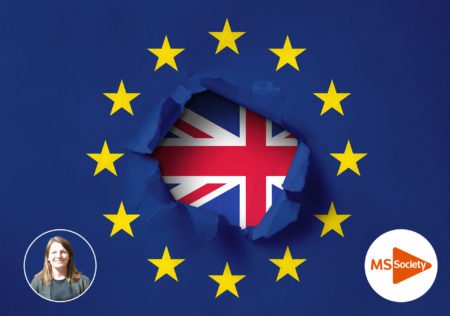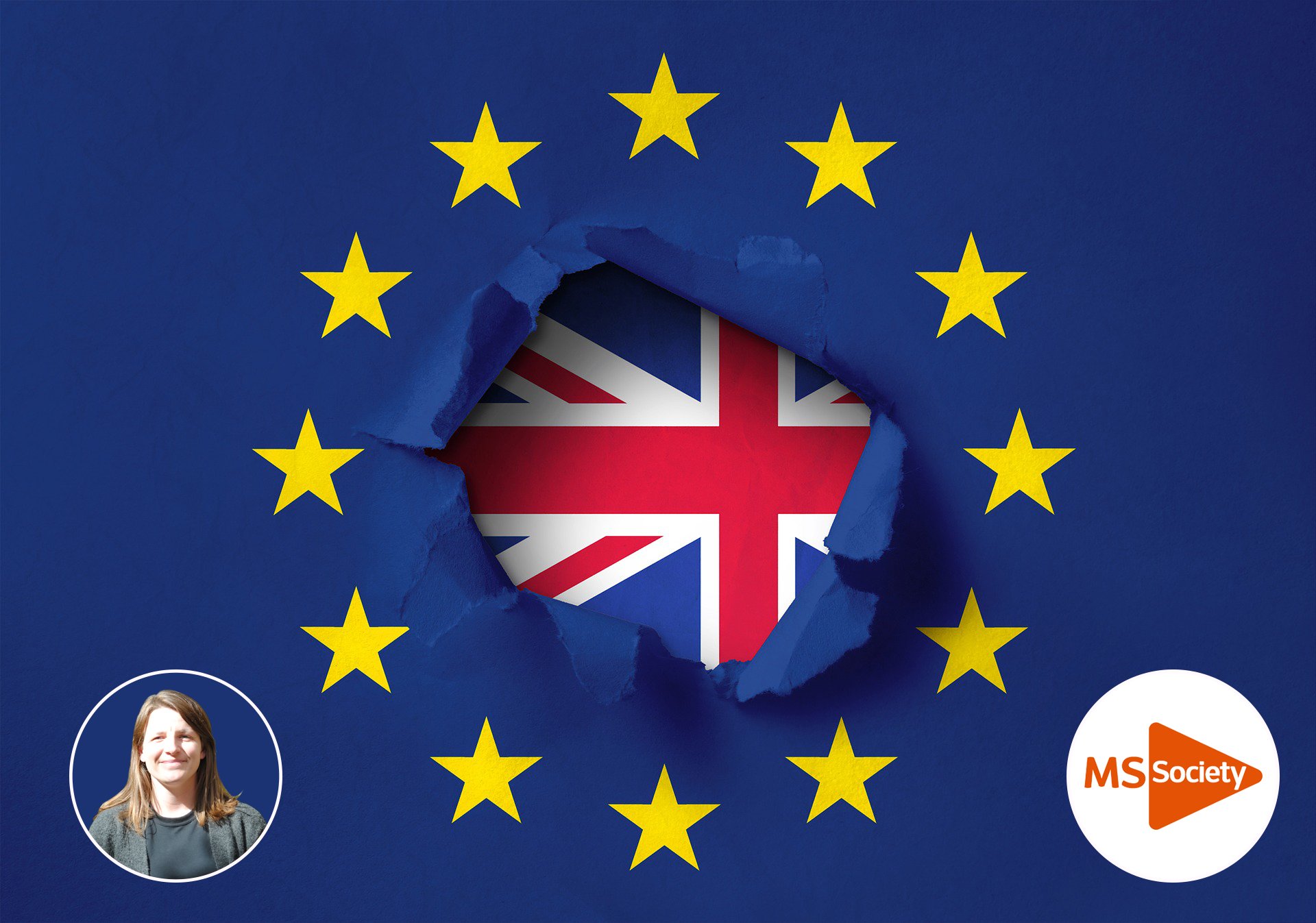
Brexit and MS
07.11.2018By our EMSP Board member & guest author: Georgina Carr (UK MS Society)
It’s now over two years since the UK voted to leave the EU. Although the date is set for 29 March 2019, the UK’s future relationship with the EU remains unclear.

There’s a lot of debate about whether we’ll have a deal or a no deal Brexit, and what either option could look like. It’s hard to know at this stage what Brexit means for people affected by MS across Europe. But we do know several key policy areas are likely to be impacted. In this blog, we’ve decided to look at three priority areas for people with MS.
-
Access to medicines
There are lots of ways in which the EU cooperates to ensure access to medicines. This includes putting in place clear supply chains for medicines, clinical trials regulations and regulation of new medicines.
The UK Government has said medicine supplies may be affected by a no-deal Brexit. They have asked drug companies to increase their medicine stocks by an extra 6 weeks, which should ensure people with MS continue to access medicines. We’ve also had assurances from industry that they do not expect there to be a shortage of MS medicines. We’ll be keeping a very close eye on this.
At the moment, the European Medicines Agency (EMA) is responsible for approving new medicines. But the UK’s future relationship with the EMA is yet to be decided. The Government has said that a system for approving drugs will be in place, whatever the outcome of the Brexit negotiations.
If the UK needs a new system after Brexit, this could be an opportunity to improve the current process and quicken access to new medicines.
However, if the system is too different from what is used in the EU, drug companies might try to get drugs to market there, before getting approval in the UK. Needless to say, we’d urge both the EU and UK to ensure, whatever system is in place, it ensures people with MS are able to access new medicines in a timely manner.
-
Health and care workforce
The policy of freedom of movement and mutual recognition of professional qualifications within the EU means that many health and social care professionals currently working in the UK have come from other EU countries.
However, there’s currently a shortage of staff working in the NHS and social care services. We don’t have enough MS nurses, and have far fewer neurologists per capita in the UK compared to other European countries.
The Nursing and Midwifery Council, which regulate nurses in the UK, have already seen a fall in EU nurses applying for jobs in the UK. Brexit could mean EU staff are less likely to move to work in the UK.
Accessing health and care professionals at the right time is very important for patients. The UK Government has said it will protect the future of EU citizens in the UK after Brexit.
The Government has not properly explained how it will deal with the falling numbers of staff from the EU, or how professional qualifications will be recognised in the future. We want the UK Government to set out how they plan to maintain a strong and diverse health and care workforce.
-
Research
The EU funds MS research across the continent and beyond, and the UK has also benefited from this funding. The Horizon 2020 research programme has, for example, channelled more than €11bn to the UK since 2014.
The UK government has announced that funding for agreed EU research projects will be guaranteed until the end of 2020, even in the event of a no-deal.
When the UK becomes a non-EU country, it should still be eligible to participate in EU research programmes – following the example of countries like Israel, which have an associate status that allows them to be included.
Stopping MS, through the funding of the most impactful research, is clearly a global challenge. Therefore, ensuring continued cooperation and funding, is critical.
-
What is the MS community doing about it?
At the UK MS Society, we want to ensure people with MS are not disproportionately impacted by Brexit. We have been working with the NHS, healthcare professionals, medical researchers and other charities to make sure that we get the best deal for people living with MS.
We remain committed to working with MS organisations across Europe, including through our membership of the European MS Platform, towards our collective vision of a world free of MS. Working together has never been more important.
This article is now available in eight (8) different languages:
We would like to hereby express our gratitude to Susanna Van Tonder (Luxembourg), Wouter Marijsse (Belgium), Patrik Puljic (Croatia), Tamara Dugalic (Serbia), Krystalenia Ampreou (Greece) and Mate Tagaj (Hungary) for the invaluable support with the translations of this article.
If you would like to help us translate this article into other languages, please contact mate.tagaj@emsp.org!
 Your Account
Your Account










